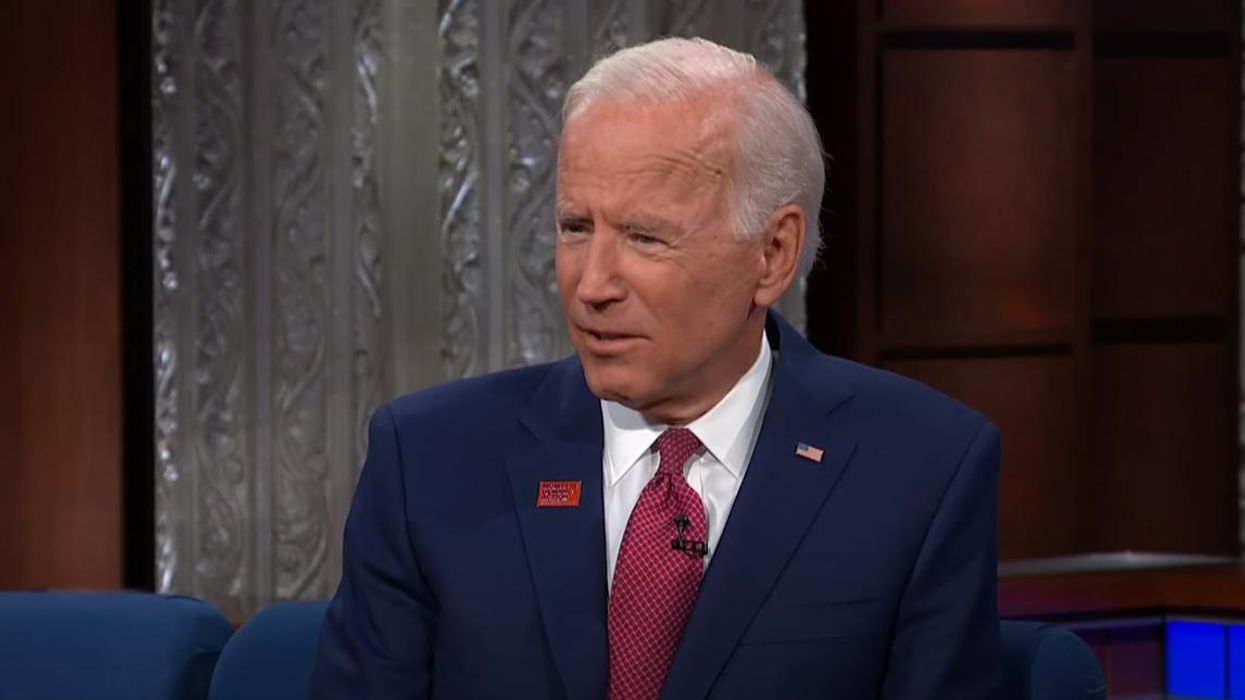
Joe Biden
Restraint is a useful but often unsatisfying virtue, and in the case of Ukraine, there are plenty of people who think that it's not a virtue at all. Fortunately, American policy is being set by Joe Biden, who has a sober understanding of the perils of overreach.
The Russian invasion of Ukraine spurred all sorts of extravagant demands for U.S. action. Sen. Chris Coons (D-DE), urged the president "to send not just arms but troops to the aid in defense of Ukraine." Sen. Roger Wicker (R-MS)., was one of several GOP members of Congress to say the U.S. should establish a no-fly zone in Ukraine — which could mean shooting down Russian warplanes.
Biden dismissed these options, even as he extended economic aid, weapons and moral support to the besieged Ukrainian government. But prudence invites charges of weakness. Sen. Tom Cotton, R-Ark., says Biden is "scared of Putin."
On Monday, Sen. Lindsey Graham (R-SC), took to Twitter to accuse Biden of "a betrayal of #Ukraine and democracy itself." His offense? Declining to provide Ukraine with missiles that can hit targets as far as 185 miles away.
"We're not going to send to Ukraine rocket systems that strike into Russia," Biden said flatly. The obvious reason is that such missile attacks would drastically raise the stakes for Vladimir Putin — who, let us not forget, has the world's largest arsenal of nuclear weapons. Biden is not about to outsource our fate to Ukrainian President Volodymyr Zelensky.
Another idea is to deploy U.S. Navy ships to break the Russian blockade of Odessa, which has deprived the world of Ukrainian grain. But Gen. Mark Milley, chairman of the Joint Chiefs of Staff, pointed out that this option could lead to direct combat with Russia.
"Right now, the sea lanes are blocked by mines and the Russian navy," he said Tuesday. "It would be a high-risk military operation that would require significant levels of effort."
But the concept of "high risk" doesn't register with inveterate hawks who think every problem can be solved by the application of America's armed might — a theory decisively refuted in Iraq and Afghanistan, among other places.
Such disasters instilled in Biden a healthy skepticism about military intervention. But that skepticism has also moved him to look for alternatives in dealing with foreign crises.
As it has from the start, his administration is trying to ensure that Ukraine can stave off the Russian invasion — without provoking Putin to escalate and without embroiling the U.S. in the war.
Biden hasn't tried to dictate what Zelensky should aspire to achieve or what he should be willing to accept. In an op-ed in Wednesday's New York Times, he said he "will not pressure the Ukrainian government — in private or public — to make any territorial concessions."
At the same time, he's made it plain that the U.S. commitment has strict limits. Biden's op-ed didn't fantasize about a complete victory that would evict Russia from every inch of Ukrainian soil. His goal, he wrote, is to help Ukraine achieve "the strongest possible position at the negotiating table." Left unspoken is that any negotiations are bound to require territorial concessions.
Biden's administration has adopted a variety of stern measures to punish and weaken Putin and deter him from broader aggression, most recently signing a package of military, economic and humanitarian aid costing $40 billion.
Biden moved 12,000 troops into NATO countries bordering on Russia, including Latvia, Lithuania, Estonia, and Romania. He welcomed the request from Sweden and Finland to join the alliance.
He imposed a ban on Russian oil and gas imports — a step that prodded the European Union, which is far more dependent on them, to approve its own ban.
He adopted severe economic sanctions to deprive Russia of the money to fight the war. The decision led a host of big Western corporations, from McDonald's to Apple to ExxonMobil, to stop doing business in Russia. All this has been a marvel of Western cooperation and resolve.
It has also had tangible results. Russian exports and imports have plunged. Inflation hit nearly 18% in April. The Russian army has found itself repeatedly stopped or pushed back, and as many as 15,000 of its soldiers have been killed.
Biden understood the importance of responding forcefully to an unprovoked act of aggression. But he also knows that pushing too far can lead to disaster.
Follow Steve Chapman on Twitter @SteveChapman13 or at https://www.facebook.com/stevechapman13. To find out more about Steve Chapman and read features by other Creators Syndicate writers and cartoonists, visit the Creators Syndicate website at www.creators.com.
- Live updates: Ukraine diplomat urges China to talk to Putin | AP News ›
- Biden Weighs Deploying Thousands of Troops to Eastern Europe ... ›
- US Indo-Pacific power depends on restraint in Ukraine — United ... ›
- What Happened on Day 69 of the War in Ukraine - The New York ... ›
- As Russian Federation's Invasion of Ukraine Creates New Global ... ›
- Remarks by President Biden Providing an Update on Russia and ... ›
- Steve Chapman: Biden shows resolve and the proper restraint in ... ›








Trump Cabinet Nominee Withdraws Over (Sane) January 6 Comments